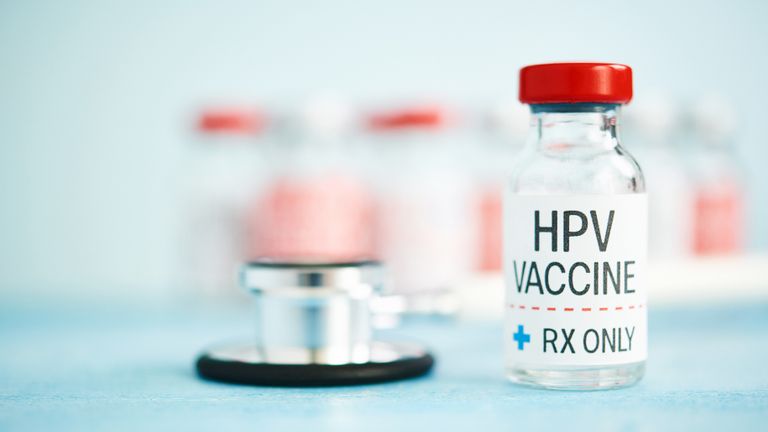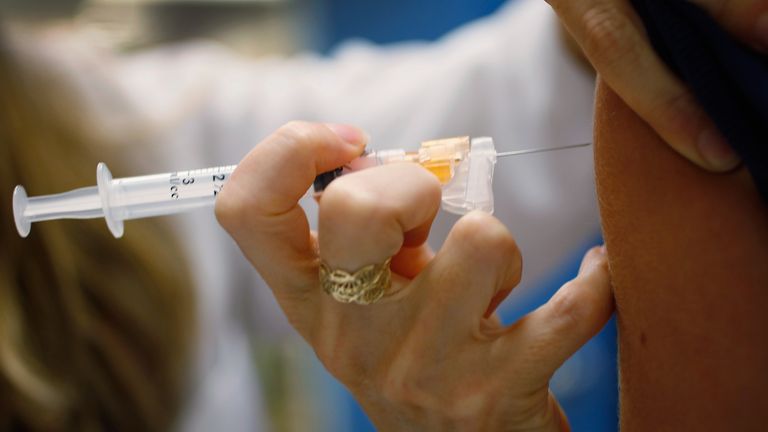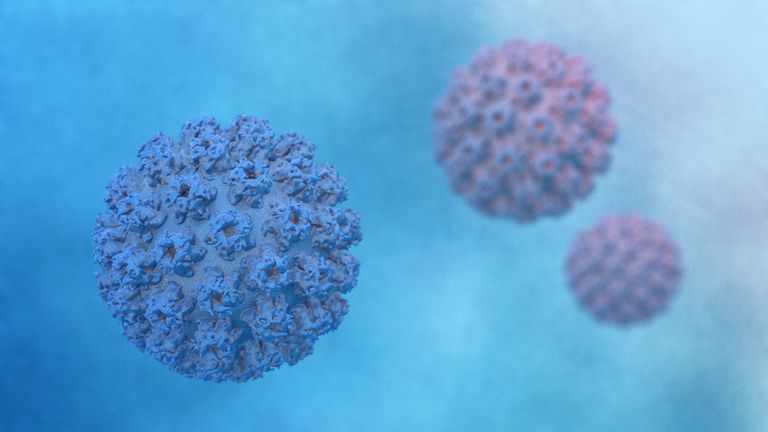HPV vaccinations for boys could reduce cancer rates in men, research shows
HPV is a sexually transmitted infection, which can, in extreme cases, cause cervical cancer in women, and head cancer in men.
Tuesday 25 June 2019 13:34, UK
New research suggests that vaccinating boys against human papillomavirus, or HPV, could cut cancer rates related to the virus in men in the long term.
A two-year study of 235 patients in Scotland with head and neck cancers, found HPV was present in 60% of the cases.
HPV is a common sexually transmitted infection, with some types being linked to cancer, and in particular cervical cancer in women and head and neck cancer in men.
Kevin Pollock from Glasgow Caledonian University, who co-authored the research, said that head and neck cancer has been increasing over the last 25 years, particularly among men.
In 1994, there were around 100 cases in Scotland, but 5 years later this had more than tripled to 350.
Dr Pollock said: "Some of the reasons for this increase are due to alcohol and smoking, but we think the proportion of HPV-related head and neck cancers are increasing. This might be due to a change in sexual behaviours."
:: Listen to the Behind the Headline podcast on , , ,
Dr Pollock also welcomed Scottish government plans to extend the school HPV vaccination to cover both boys and girls, saying: "Our latest data shows that 78% of people with head and neck cancers were men and that HPV was present in 60% of the cancers.
"This means the vaccine may reduce some of these cancers in the long term in Scotland.
"Not only that, but when we looked at the deprivation status of these cases - much like cervical cancer - head and neck cancers are disproportionately experienced by more deprived individuals.
"We know that smoking and alcohol consumption are linked to these cancers and policies are in place to try and reduce this consumption, but the great thing about a vaccine given to young boys is that if you give it early enough, and see a high uptake across all the deprived areas, you are reducing the inequality."
The findings come off the back of a report in April from Dr Pollock and academics from universities in Scotland, which suggested routine vaccination of school-girls in Scotland with HPV has led to a big reduction in cervical disease in later life.
Since the UK wide vaccination scheme was launched 10 years ago, researchers found a reduction of up to 90% of instances of pre-cancerous cells being discovered in smear tests at the age of 20.
The Throat Cancer Foundation says it welcomes the research.
CEO Jamie Rae, who set up the charity after being diagnosed with throat cancer caused by HPV, said: "HPV is responsible globally for 5% of all cancers.
"What Dr Kevin Pollock's research highlights is both the importance and opportunity to end the destructive impacts HPV has on head and neck cancers.
"We welcome the findings in this research and recognise that it is going to be a useful tool to help educate the general public as to why a nationwide HPV vaccination programme will benefit and protect children's health in future years."






